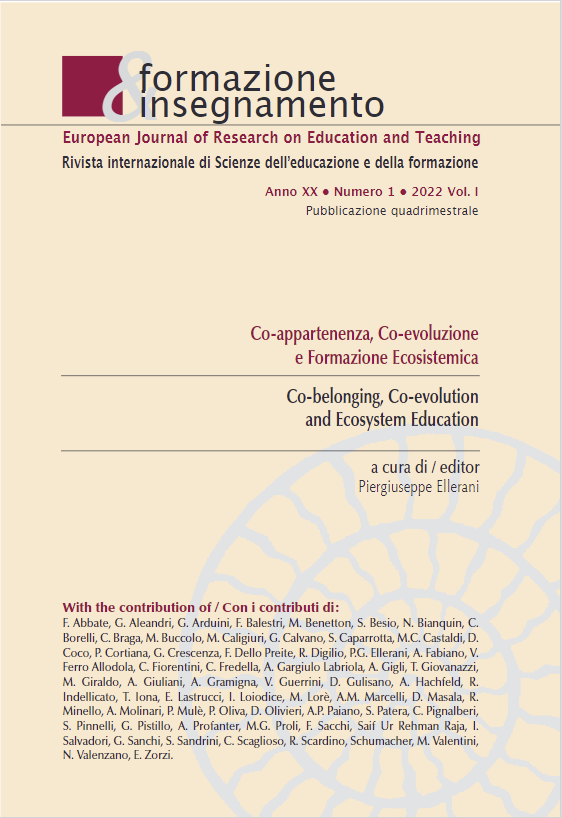Presilience as a “Side Effect” of the Pandemic Crisis: Critical Reinterpretation of the Merits of Distance Learning
DOI:
https://doi.org/10.7346/-fei-XX-01-22_26Keywords:
COVID-19, Distance learning effects, Presilience, Educational neuroscience, Positive pedagogyAbstract
Like the rest of the world, Italy has experienced the rapid transition from face-to-face learning to distance learning, due to the Covid-19 pandemic. Far from considering Distance Learning as a further negative effect of the current pandemic, this paper intends to illustrate the reasons why Distance Learning - better defined as Emergency Remote Learning - actually represented a valid testing ground for implementation of a transformative (digital) pedagogy. Through the reinterpretation of the supposed anxious states caused in students by social isolation, in terms of developing the lifeskill of presilience, necessary to thrive in the “new normal”, the best terms will be analyzed to evaluate the effectiveness of the emergency educational interventions implemented, also drawing on the most recent neuroscientific research results on the psychophysical and educational effects of Distance Learning. The last part of the paper hosts a reflection on how post-pandemic competence in school environments can be built today, to respond as effectively as possible to the current needs of our students, which Distance Learning
has helped to bring out.
Downloads
Published
How to Cite
Issue
Section
License
Copyright (c) 2022 Diana Olivieri

This work is licensed under a Creative Commons Attribution 4.0 International License.
Formazione & insegnamento is distributed under Attribution 4.0 International (CC BY 4.0).
For further details, please refer to our Repository & Archiving Policy, as well as our Copyright & Licensing Terms.





